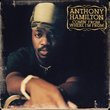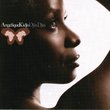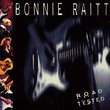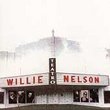| All Artists: Anoushka Shankar Title: Rise Members Wishing: 0 Total Copies: 0 Label: Angel Records Original Release Date: 1/1/2005 Re-Release Date: 9/27/2005 Genres: International Music, Pop Styles: India & Pakistan, India Number of Discs: 1 SwapaCD Credits: 1 UPCs: 724358029529, 724358029550 |
Search - Anoushka Shankar :: Rise
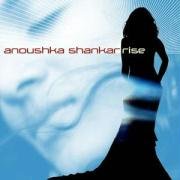 | Anoushka Shankar Rise Genres: International Music, Pop
There are prodigies and there is progeny. Anoushka Shankar is both. As the daughter of sitar legend Ravi Shankar, she's got bloodlines and a teacher who is one of the greatest to ever play sitar. While Anoushka has pretty ... more » |
Larger Image |
CD DetailsSynopsis
Amazon.com There are prodigies and there is progeny. Anoushka Shankar is both. As the daughter of sitar legend Ravi Shankar, she's got bloodlines and a teacher who is one of the greatest to ever play sitar. While Anoushka has pretty good classical chops (not the best, but pretty good), Rise shows her versatility and growth as a composer, arranger, and producer. The nine-song album features her sitar along with a variety of traditional Indian and modern Western instruments. She orders the ragas logically, starting with morning and working toward the final one at the end of the night, each one capturing the mood of its particular time of day. For example, mellow opener "Prayer in Passing" would be the initial waking moments, while the mood soon gets more upbeat on "Red Sun" before the midday heat sets in for the middle tracks and brings down the tempo. Traditionalists will call it pop, but there is nothing light or disposable about Rise. --Tad Hendrickson Similarly Requested CDs
|
CD ReviewsTastefully atmospheric Michael J. Rudnicki | Dallas, TX | 09/28/2005 (4 out of 5 stars) "I've become quite a fan of Ravi and Anoushka Shankar in the last few years and have seen them perform a couple of times. I was slightly reticent about this album because of a skepticism towards "world music" in general (which is sometimes a cheesy fusion of the most plastic of western pop and the music of another culture). However, Anoushka exhibits taste with her considerable composition skills. She nicely integrates electronics with traditional instruments such as didgeridoo, South American vocal percussion, piano, cello, violin, and, of course, traditional Indian instruments. The release feels fresh because of its being informed by modern electronic music (Anoushka is a big fan of trance, for one), yet retains an organic feel that keeps it grounded." A Magic Carpet Ride... Tom Clark | Southern California | 01/03/2006 (5 out of 5 stars) "I was in Sound Spectrum in Laguna Beach, California a couple of days ago where the owner Jim had Anoushka Shankar's album Rise playing. Wow, it sure got my attention. Anoushka is the daughter of legendary Indian sitarist Ravi Shankar and along with her famous half-sister Norah Jones is heir to one of the world's great musical legacies. As one of only a handful of female sitar players in the world, Anoushka could well be thought to be trading on her uniqueness in the male-dominated culture of sitarists and on her father's famous name. But that's definitely not the case here. She's an accomplished sitarist, musician, composer and director in her own right with an impressive list of awards and credits for someone in her mid-twenties. Rise is a luscious, evocative album that features Anoushka's traditional Indian sitar playing set amidst richly textured arrangements, instrumentations and vocalizations. The compositions and arrangements are hers and they float magically out there somewhere in the ethers between the ancient sounds of Indian music and rhythmic contemporary stylings. Anoushka's music on Rise is both haunting and liquid, beguiling us with a mystical magic carpet ride and then seducing us with its colorful gems along the way. (When was the last time you heard a sitar and a didjeridoo making music together?) For those familiar with the music of Spain's Ojos de Brujo there's some vocalizing on Anoushka's song Red Sun that's highly reminiscent of the vocalizing on Brujo's Gypsy Party. I was excited to hear this unusual vocalizing again - it's electrifying stuff and makes me think that this is what a human voice would sound like if it morphed into a percussion instrument. Though Anoushka's music is truly Indian at its core and Ojos de Brujo's decidedly Spanish, both share a common thread in the way they blend traditional music with contemporary stylings and do it so well; a telling hint as to the evolution of music. I like Anoushka Shankar's music on Rise a lot. It has a haunting, seductive quality to it that stirs the imagination and inspires a meditative, trance-like stream of consciousness that makes me want to dance and dream all at the same time. " Ancient love N. Aggelopoulos | 05/10/2006 (5 out of 5 stars) "I would suggest you don't drive a car while listening to this music, as some of the other reviewers suggest, unless you are banking on a good reincarnation.
This is a phenomenal result from Anushka Shankar, a musical follow-up to Ravi Shankar's Tana Mana and just as bold and beautiful. I get personally sometimes slightly annoyed by attempts to commercialise Indian classical music. As a genre it already has a far bigger audience than when it was played solely for the enjoyment of Indian kings. It is a music of our time more than of any other time. There is enough ancient love in Anushka Shankar's music and the music of many other Indian musicians that it does not need the blaring out of synthesizers to announce itself. Thankfully, this is one of the few Indian fusion recordings after Tana Mana that make use of synthesizers without allowing them to interfere too much with the music. The music is like a drug. Here I am at 4 o'clock at night unable to stop listening to it. I have been listening to it for days and cannot get much work done. It would be impossible to fault Anushka Shankar - she has inherited directly what is at the very heart of Indian classical music, her father's teachings. But there is a bit more. I get a feeling that Anushka is developing Indian classical music slightly away from the typical trio - solo instrument, tabla, tanpura - to the level of a small ensemble. There was an example in the Concert for George where she conducted an orchestra of sitars. Here several instruments alternate or join together in building the melody: not just the sitar and tabla but flutes, a violin, piano, santoor and voice among much else classical or modern, sometimes all in a single piece. Perhaps it is best not to try to describe the music, when it is as beautiful as this. I am sure I cannot do it justice. So perhaps you can stop reading here. If you insist - there are entrancing, mesmerising moments especially in Prayer in Passing, Naked and Solea. Sometimes there are jazzy echoes as if from Santana's "Caravanserai", Chick Corea's "Light as a Feather" or Al di Meola's atmospheric "the Grande Passion". The track Mahadeva, the Indian god of war, is fittingly menacing and warlike. Beloved and Sinister Grains develop into a kind of Indian Trance somewhat in the style of Prem Joshua. The tour de force is Voice of the Moon with a violin joining the sitar in a way that reminds of the time a long time ago when Jehudi Menuhin joined on the violin Ravi Shankar's sitar into melodic duets that can be found in some of Ravi Shankar's early recordings. Perhaps this is the perfect lunacy of ancient love, maybe even modern love, a mad love for beautiful music." |

 Track Listings (9) - Disc #1
Track Listings (9) - Disc #1